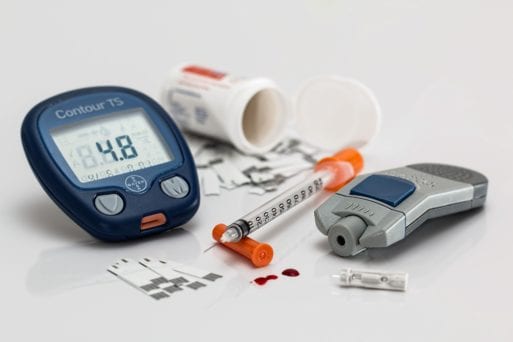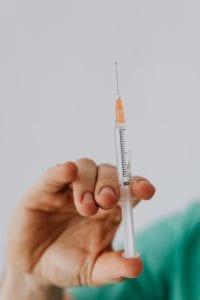
Credit: Steve Buissinne
More than 1.5 million adult Americans suffer from Type 1 diabetes, many of whom struggle to afford insulin as prices skyrocket as high as $320 per vial. And while a recent presidential order has significantly lowered insulin costs for seniors on Medicare, advocates say it’s not enough.
Diabetes is the main cause of kidney failure and the seventh leading cause of death in the U.S., according to the Centers for Disease Control and Prevention — though some studies suggest it’s much higher. Over 34 million Americans now have diabetes (including Type 2 diabetics, only some of whom require insulin). Yet soaring insulin costs mean many have trouble gaining access to the drug that can be essential for their survival.
The price of insulin nearly tripled between 2002 to 2013, according to the American Diabetes Association. Depending on individual needs and the type of insulin taken, the drug often costs more than $1,000 per month. And while some of those expenditures may be covered by insurance, copays can be as high as 50%, leaving many individuals with significant out-of-pocket bills.
Pharmaceutical companies Eli Lilly, Novo Nordisk and Sanofi have a monopoly on the U.S. market and have hiked insulin prices in recent years, though a national outcry has prompted some recent concessions. At least eight states have introduced their own price caps. And while Congress has been discussing legislation to reduce prescription drug prices, these efforts have recently stalled. Late last month, President Donald Trump signed four executive orders to reduce drug costs, including one that caps insulin copays at $35 per month for seniors aged 65 and older on Medicare.
Multiple Factors Affect Insulin Costs

Credit: Karolina Grabowska
Advocates such as Amy Hinojosa, president and CEO of MANA, a national Latina organization, said in an opinion piece for the Lewiston Sun Journal that while it’s a good first step, further action is required. She pointed out that Hispanic adults, who are 1.7 times more likely than white Americans to contract diabetes and also have lower average incomes, suffer disproportionately, partly due to shady rebate practices by middlemen in the drug supply chain.
“While the newly announced Medicare reform will have real benefits for vulnerable patients, the administration should also crack down on these unfair rebate practices,” she wrote. “This will be the next logical step of many to adequately address how to effectively battle the diabetes epidemic and ensure that no one has to die over the price of insulin.”
Meanwhile, Dr. Walid Gellad, head of the Center for Pharmaceutical Policy and Prescribing at the University of Pittsburgh, said that between drug makers, the Food and Drug Administration, doctors and other actors, there’s more than enough blame to go around. “Everyone is at fault, which makes it hard to figure out how to fix it,” he told STAT.
Many younger people with Type 1 diabetes remain unable to afford the medicine they require, causing them to resort to desperate measures. In a recent video opinion piece from The New York Times, several discussed the lengths they’ve had to go to in order to obtain low-cost insulin — including driving across the border to Mexico, ordering from an underground dealer or engaging in drug-sharing over social media. One mother lamented the death of her son, who had been rationing his insulin after aging off her insurance.
“For the many Americans who cannot afford their insulin, the consequences can be dire, including dangerous complications and even death,” said LaShawn McIver, Senior Vice President of Government Affairs and Advocacy for the ADA, in a 2019 press release. “Insulin is a matter of life and death.”

 Some Diabetic Seniors Can Now Get Low-Cost Insulin
Some Diabetic Seniors Can Now Get Low-Cost Insulin


 National Donate Life Month Reminds Us To Give
National Donate Life Month Reminds Us To Give
 How Dare You Die Now!
How Dare You Die Now!















